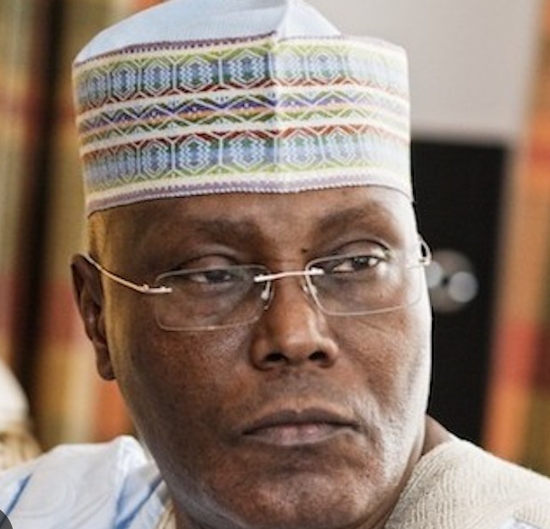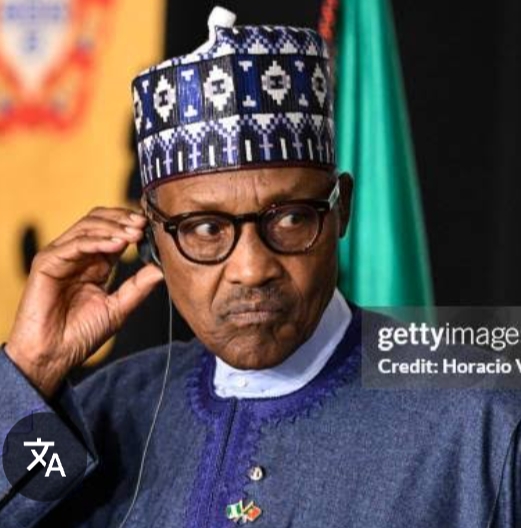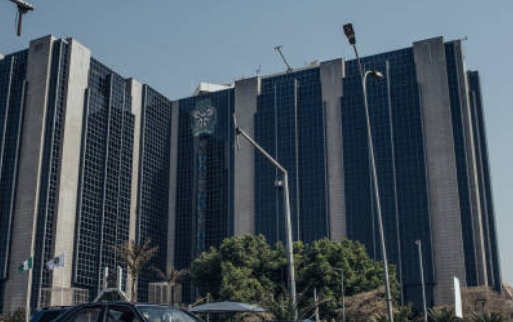News
Senate mulls mobile court to jail out-of-school children’s guardians

The Senate, on Wednesday, called for the establishment of mobile courts for the trial and imprisonment of parents and guardians refusing to enrol their wards in school in compliance with the Universal Basic Education Act.
The move is to address the 20 million out-of-school children in the country.
The Senate President, Godswill Akpabio, specifically urged the 36 states of the federation and the Federal Capital Territory to adopt the measures he used in Akwa Ibom State when he was governor, which entailed six months imprisonment for parents and guardians of school-aged children found on the streets or in the farm, during school hours.
The Senate made the resolution, following a motion by Senator Idiat Adebule, (APC, Lagos West), titled: “Compelling need to tackle the challenge of out-of-school children in Nigeria.”
Adebule, in the motion, said it had become worrisome, going by the 2022 report of the United Nations Education, Scientific and Cultural Organisation, UNESCO that about 20 million Nigerian children are out of school, which represents 10 per cent of the estimated Nigerian population of 200 million people and also represents the highest number of out-of-school children from any country globally.
She said, “Though the Federal Ministry of Education has disputed the figure, it’s generally agreed that whatever the real figures, the issue of out-of-school children has become an albatross on the neck of the Nigerian state that must be dealt with as a matter of urgency.”
In his contribution to the motion, Senator Adams Oshiomhole (APC Edo North), said the menace must be tackled very urgently because illiteracy engenders poverty and poverty engenders crime.
“I really don’t think we need any tutorial to remind us that he or she who didn’t have the opportunity or was denied the opportunity to go to school is destined to be poor forever.
“An illiterate young man or woman is bound to give birth to another illiterate child which will lead to a dynasty of the poor constituting a risk to the rich and the society at large.
“Today in Nigeria, we can see and we are all witnesses that inequality and abject poverty anywhere has constituted a huge security risk to everyone in Nigeria. It is clear that every Nigerian child needs to go to school,” Oshiomhole said.
He accused some governors, particularly from the northern part of the country, of sabotaging efforts of the Federal Government to make basic education free and compulsory for every child in Nigeria.
“The governors sabotaging the policy, deliberately refusing to contribute 50 per cent of fund required from them as counterpart funding of UBE policy,” he said.
Supporting the motion, the Deputy Senate President, Jibrin Barau, said the problem needed to be frontally addressed because it was the out-of-school children that later became tools for terrorism, banditry, kidnapping and other violent crimes in the country.
Barau said, “I commend Senator Adebule Idiat for moving this motion. Bringing it forward at this point is a big service to our nation. Education is said to be the bedrock of every society; it’s a pillar upon which every human being begins his or her life.”
Other senators, like the former Senate President, Ahmad Lawan (APC Yobe North), Mohammed Monguno (APC Borno North), contributed to the debate by calling on government at all levels to urgently arrest the trend.
In his remarks after the adoption of prayers in the motion as resolutions, Akpabio said, “Since education is the bedrock of all good things in any society, government at all levels, should ensure that no school-age child stays out of school in Nigeria.
“We did it in Akwa Ibom State when I was governor by enforcing compliance to the UBE Act by all Parents or Guardians or were made to know that anybody caught not sending his or her child to school, risks six months imprisonment.
“By way of legislation, the Child Rights Act was put in place which has free and compulsory education as parts of its provisions. Other states in Nigeria should adopt this as required measures of making education truly free and compulsory for children in the country,” he added.
News
Kill your 2027 election, PDP, LP chieftains advise Atiku

By Kayode Sanni-Arewa
A member of the National Executive Committee of the Peoples Democratic Party, Diran Odeyemi, and a chieftain of the Labour Party, Anslem Eragbe, have advised former Vice President Atiku Abubakar to kill his 2027 presidential election ambition.
Both Odeyemi and Eragbe said the South should be allowed to rule for eight years.
They said the 2027 southern president might not necessarily be President Bola Tinubu.
Eragbe, in an interview with Sunday PUNCH, argued that Atiku should not have contested the 2023 presidential election because it was the turn of the South to produce a president.
He said, “Atiku was not supposed to contest the 2023 presidential election because it was the turn of southern Nigeria. It is the turn of the South till 2031.
“Being a former Vice President of Nigeria for eight years; Atiku knows Nigeria’s power drill and equation. He should support younger Nigerians to power and provide guidance in 2027.”
Asked if the former Vice President would breach any law if he chooses to run for the nation’s highest office in 2027, Eragbe said the PDP stalwart “is entitled to his ambition and aspirations, adding however that “2027 – 2031 is for southern Nigeria.”
According to him, the 2027 presidency shall remain in southern Nigeria and should be zoned to the South-South region.
“It should be further micro-zoned to the (defunct) mid-Western region. I mean the defunct Bendel, now Edo and Delta states. We expect the major political parties to do this for equity, justice, fairness and parity.
“However, should President Bola Tinubu, win the 2027 presidential election and continue till 2031, power shall return to Northern Nigeria,” he added.
The former President of the Student Union Government of Ahmadu Bello University, Zaria, added that when compared with other geo-political zones in the country, the South-South had spent the least number of years on the presidential seat.
“The region that has ruled the least in Nigeria is the South-South with only five years under Goodluck Jonathan and should rule Nigeria again beginning from 2027.
“When put together, the North-Central spent a total of 17 years and 11 months, North-West, 17 years, three months; North-East, 10 years, three months; South-West, 15 years, four months by the time Tinubu finishes his term in May 2027; South East spent five years and nine months and the South-South, the only region to spend five years only on the presidential seat,” he added.
Eragbe called on the political parties to identify credible politicians, regardless of their financial status, to fly their flags for the various elective offices, stressing that 2027 would be another opportunity to right the wrongs of the past.
Speaking with Sunday PUNCH, Odeyemi stated that the ex-vice president’s participation in the 2023 presidential election and his perceived ambitions for 2027 were the causes of PDP crisis.
He charged Atiku to bury his ambition, adding that once the former vice president failed to declare interest in 2027, the crisis in the party would be over.
The 2023 election was originally supposed to be between southerners, as former President Muhammadu Buhari, a northerner, had just completed eight years in office. However, Atiku insisted on exercising his rights, which is why there is a crisis in the PDP,” he stated.
News
Why Buhari govt was shoved aside – IBB

By Kayode Sanni-Arewa
Ex-military head of state, Ibrahim Badamasi Babangida (IBB), has stated that he shoved aside Muhammadu Buhari’s regime because he believed his policies were detrimental to the nation’s progress.
The former military leader disclosed this in his autobiography, ‘A Journey In Service’, launched in Abuja on Thursday.
Babangida was chief of staff to Buhari, who ousted Shehu Shagari’s civilian government in the December 31, 1983 coup.
After the military coup that replaced the civilian government of Shehu Shagari with a military regime led by Major General Muhammadu Buhari, Ibrahim Babangida assumed the Chief of Army Staff role.
However, he became increasingly dissatisfied with the Buhari government’s policies and leadership style, which he described as draconian.
Recalling how he journeyed from Minna to Lagos on August 27, 1985, to assume office, Babangida said tension had already begun to build up since the start of the year, and a change in leadership had become necessary.
He said, “On that day, it became my lot to step into the saddle of national leadership on behalf of the Nigerian armed forces. The change in leadership had become necessary as a response to the worsening mood of the nation and growing concern about our future as a people. All through the previous day, as we flew from Minna and drove through Lagos towards Bonny Camp, I was deeply reflecting on how we as a nation got to this point and how and why I found myself at this juncture of fate.
“By the beginning of 1985, the citizenry had become apprehensive about the future of our country.
The atmosphere was precarious and fraught with ominous signs of clear and present danger. It was clear to the more discerning leadership of the armed forces that our initial rescue mission of 1983 had largely miscarried. We now stood the risk of having the armed forces split down the line because our rescue mission had largely derailed. If the armed forces imploded, the nation would go with it, and the end was just too frightening to contemplate.
“Divisions of opinion within the armed forces had come to replace the unanimity of purpose that informed the December 1983 change of government. In state affairs, the armed forces, as the only remaining institution of national cohesion, were becoming torn into factions; something needed to be done lest we lose the nation itself. My greatest fear was that division of opinion and views within the armed forces could lead to factionalisation in the military. If allowed to continue and gain root, grave dangers lay ahead.”
News
How CBN Spent $8bn On Naira Defence Against Dollar At FX Market

By Kayode Sanni-Arewa
The Chief Executive Officer of Financial Derivatives, Bismark Rewane, has revealed that the Nigerian government, through the Central Bank of Nigeria, has spent almost $8 billion defending the naira at the foreign exchange market in the last months.
Rewane, a renowned economist, disclosed this at the weekend in an interview with Channels Television.
He was reacting to the decision by the Monetary Policy Committee to retain the country’s interest rate at 27.50 percent at the same time, maintaining other MPR parameters.
Explaining the reason the Naira has appreciated to N1,505 and N1,507 across parallel and official foreign exchange markets, he noted that the apex bank has several initiatives to support the country’s currency.
“We’ve also borrowed $4 billion in bond issues. When you take a look at that, you’ll see there is a lot of work. We’ve actually spent almost $8 billion trying to support the naira at current levels,” Rewane stated.
According to him, Nigeria’s January inflation figure, which dropped to 24.48 percent after the Consumer Price Index rebasing, does not reflect the reality of ordinary Nigerians.
“There’s no way that inflation can reduce by 10% in a short period. The man on the street does not believe that inflation has come down as sharply as that,” he said.
-

 News17 hours ago
News17 hours agoJust in : Senator Gumau is dead
-

 News18 hours ago
News18 hours ago10th NASS Committed to Constitutional Reforms – Kalu
-

 Metro10 hours ago
Metro10 hours agoFire engulfs MTN office in Oyo
-

 News17 hours ago
News17 hours agoI have never insulted President Tinubu in my entire life”-Gov Adeleke
-

 News17 hours ago
News17 hours agoPolice seal OSSIEC office, officials nabbed, says chairman
-

 News24 hours ago
News24 hours agoBetara Celebrates Governor Bago @51
-

 Metro10 hours ago
Metro10 hours agoInsecurity! Gunmen invade church, slash pastor’s 2 fingers
-

 News18 hours ago
News18 hours agoRep Salam Congratulates Governor Adeleke On Successful Conduct Of LG Elections







